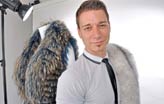Politics
Former US VP Cheney says he had secret resignation letter
Updated: 2011-08-26 08:03
(China Daily)
WASHINGTON - Former US vice-president Dick Cheney signed a secret resignation letter shortly after taking office in 2001 and kept it in a safe, according to an excerpt of an NBC interview released on Wednesday.
Cheney, who has a long history of heart disease, said concern about a possible health crisis was one of the main reasons he kept the letter. Former president George W. Bush knew about it and so did a Cheney staff member.
"I did it because I was concerned ... for a couple of reasons," Cheney said.
"One was my own health situation. The possibility that I might have a heart attack or a stroke that would be incapacitating. And, there is no mechanism for getting rid of a vice-president who can't function."
Cheney, who spoke to NBC about his forthcoming memoir In My Time, gave a few glimpses of some of the book's topics and said it was likely to be controversial.
Within the Bush administration, Cheney was one of the staunchest advocates of "enhanced" interrogations of terrorism suspects, such as waterboarding and sleep deprivation.
He said in the interview he had no regrets about his stance on such tactics and said he would "strongly support" the United States using waterboarding again "if we had a high value detainee and that was the only way we could get him to talk".
While Cheney has repeatedly insisted that waterboarding and similar techniques yielded valuable information from militants, numerous top intelligence and law enforcement officials dispute that contention. Moreover, they said techniques that many equate with torture yielded false confessions that sent US officials on wild goose chases.
Cheney, along with key aides, was also a proponent of the 2003 US-led invasion of Iraq, which the Bush administration justified by citing weapons of mass destruction and al-Qaida ties that Saddam Hussein turned out not to possess. Days before the invasion, Cheney predicted US troops would be "greeted as liberators".
In the interview, which will air on Monday, NBC's Jamie Gangel pressed Cheney on differences he had with Bush on Iraq and cited one example in which the former president cleared all of the aides out of his office and asked Cheney: "Dick, what do you think we should do?"
Gangel asked Cheney whether the book might embarrass Bush with its revelations of private conversations that highlighted the sway the vice-president held in decision-making.
"I didn't set out to embarrass the president or not embarrass the president," Cheney said.
Reuters-AFP

Specials

Flying the TCM flag
A small German town is home to Europe's flagship clinic for traditional Chinese medicine

Hunting grounds
Opinion divided as China debates opening door to international players

Animal attraction
World's youngest chief fur designer set to launch own label and tap into huge China market.